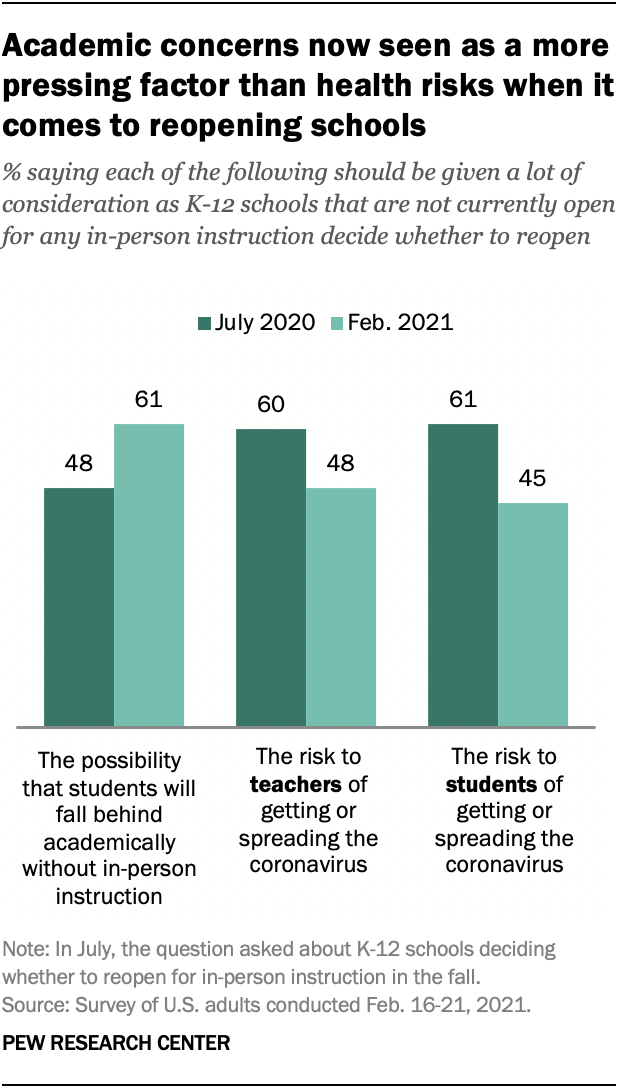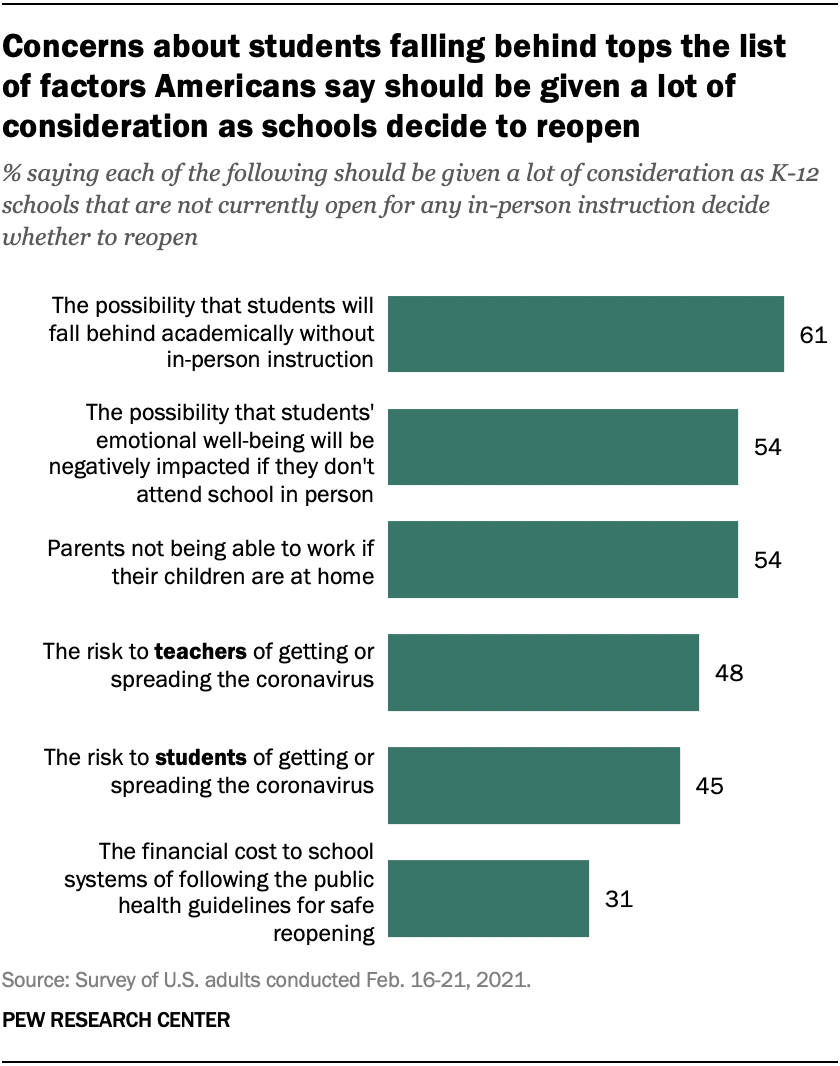More Americans see academic concerns as bigger factor than health risks in reopening schools
A higher percentage of U.S. adults now see academic concerns as a more pressing factor than health risks when it comes to reopening schools, according to new survey results by the Pew Research Center.
Sixty-one percent of respondents said that the possibility that students will fall behind academically without in-person instruction “should be given a lot of consideration as K-12 schools that are not currently open for any in-person instruction decide whether to reopen.” This is up from 48 percent of U.S. adults who responded this way when asked in July 2020 by the Pew Research Center about K-12 schools deciding whether to reopen for instruction in the fall. Forty-eight percent (compared to 60 percent in July 2020) said the risk to teachers getting or spreading the coronavirus should get a lot of consideration in reopening plans, and 45 percent (compared to 61 percent in July 2020) said the risk to students of getting or spreading the coronavirus should be greatly considered.

The shift in concern is likely due to the growing research, even from the Centers for Disease Control and Prevention (CDC), that schools can safely reopen for in-person instruction and aren’t the super-spreaders they were once feared to be. The CDC’s director has even stated that schools can reopen safely even if teachers are not vaccinated against COVID-19. And a survey of teacher union members by the American Federation of Teachers found a majority of teachers back in their classrooms are comfortable working in-person.
Other concerns that respondents said should be given a lot of consideration as schools decide to reopen included “the possibility that students’ emotional well-being will be negatively impacted if they don’t attend school in person” (54 percent), “parents not being able to work if their children are at home” (54 percent), and “the financial cost to school systems of following the public health guidelines for safe reopening” (31 percent).
